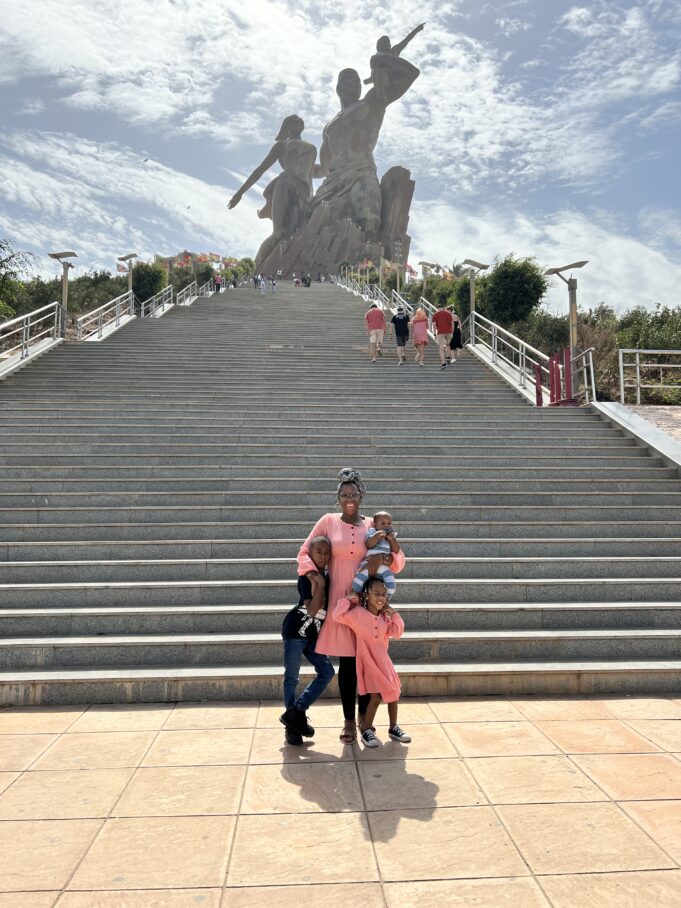DAKAR, Senegal—“Bye, bye cold weather” and “As-Salaam Alaikum, Africa.” That’s what our group of 14, eight adults and six children, said as we boarded a nonstop plane to the Motherland for a 10-day trip to one of West Africa’s most popular destinations. Let the excitement begin!
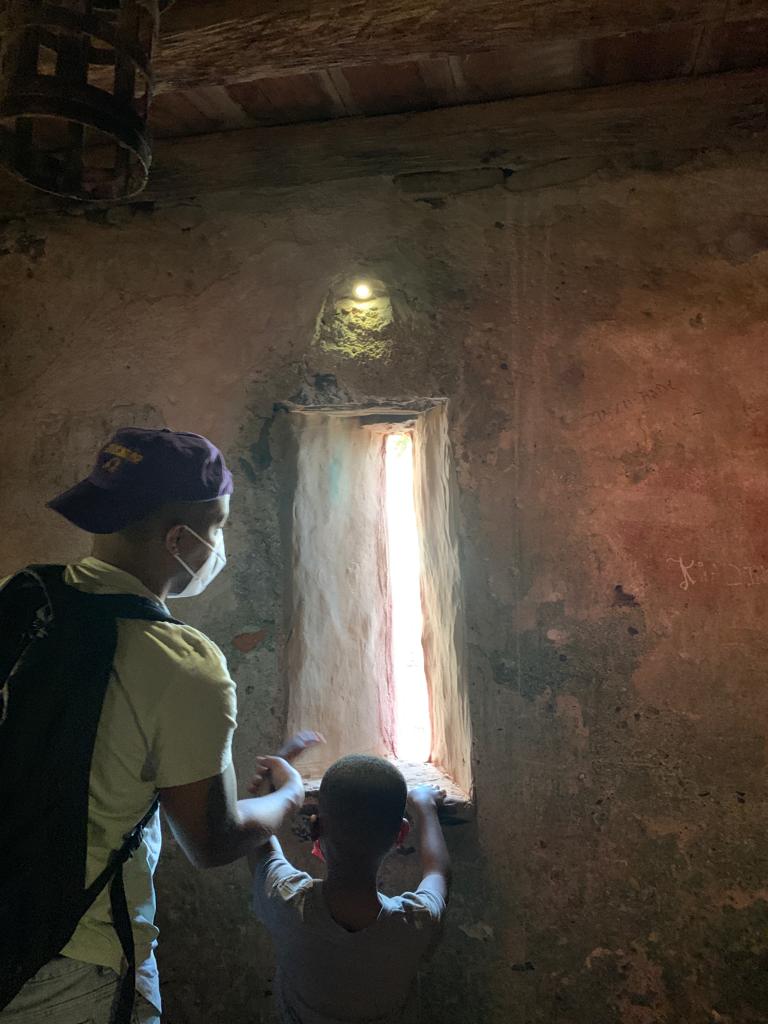
The capital of Senegal in Dakar is famous for its lively markets, access to Goree Island, known for its significant role in warehousing enslaved Africans, taking them through the Door of No Return, and the AfricanRenaissance Monument that celebrates the achievements of the African people.
“I planned the trip to start a new family tradition of traveling to Africa,” said my daughter and trip organizer Majidah Muhammad. “So many people travel to the Caribbean or Europe for vacation, but I wanted my family to explore the beauty of the African continent.”
“I want my children to see the world and to not only hear that the earth belongs to the righteous, but to see and experience it. The trip exceeded my expectations. We stayed in great locations and had good accommodations. Our tour guide was very knowledgeable and so helpful.”
Majidah told other family members and we quickly signed up. She also told friends and our numbers grew to 21 but illness and missed flights prevented some from traveling.
While Senegal’s official language is French, most people speak one of more than 30 languages as their mother tongue. According to WorldAtlas.com, approximately 15 to 20 percent of all men and between one and two percent of all women speak and understand the French language. The national languages of Senegal include Wolof, Pulaar, and Mandinka. Wolof is the most widely spoken and is the first or second language of approximately 80 percent of the population of Senegal.
We landed in Dakar for four days of tours. We visited the Renaissance Monument, Goree Island, Lake Retba, also known as the Pink Lake, because of bacteria that gives the lake its unique color and took a safari at The Bandia Wildlife Reserve.
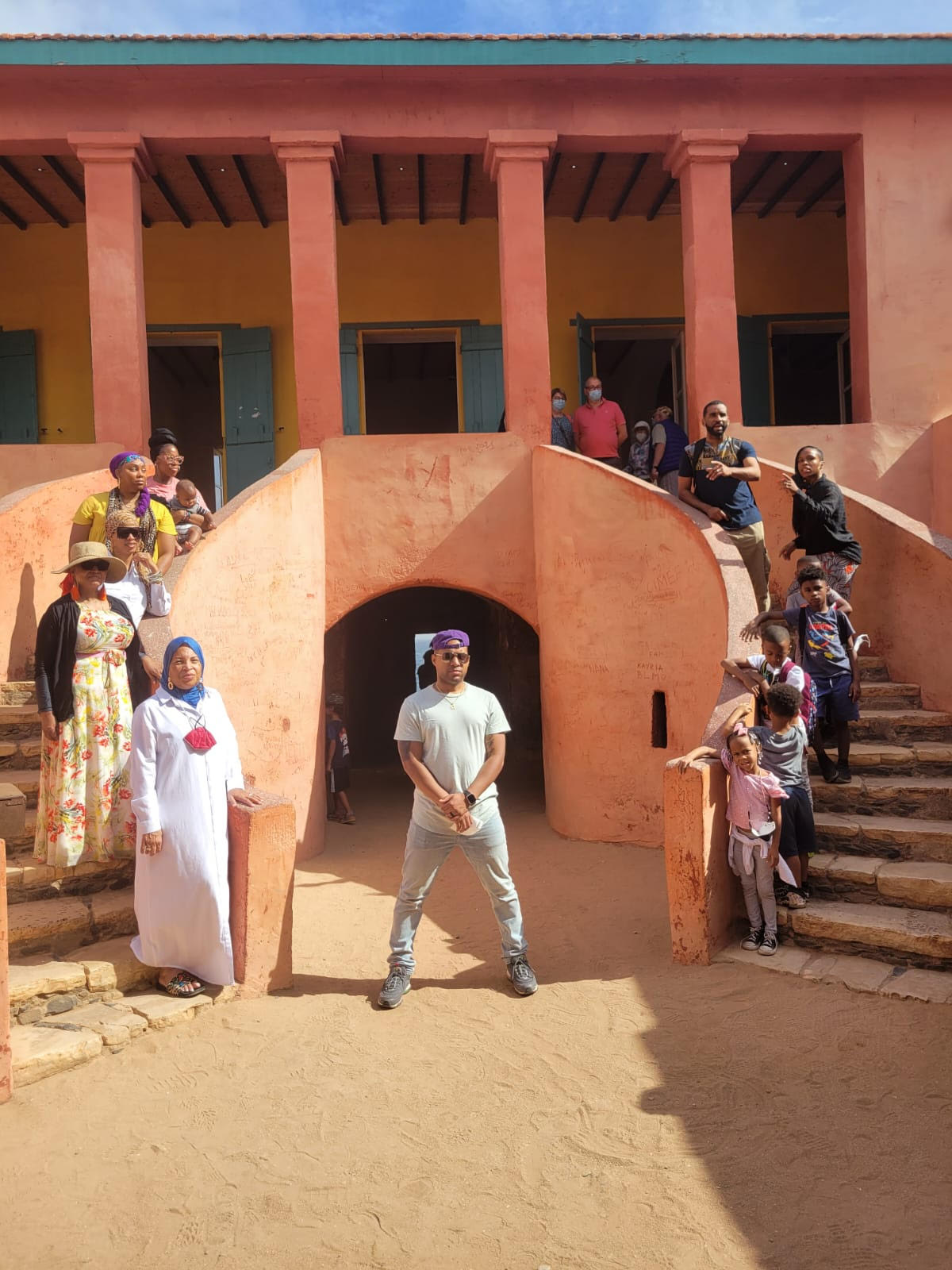
“Senegal was a significant father/son trip, it was our first time on the Motherland,” noted my son Nasser Muhammad. He took his five-year-old son, Nasser II. “To be in a country and not be looked at as a second-class citizen, or see signs that say Black Lives Matter, was an eye-opening experience,” he said.
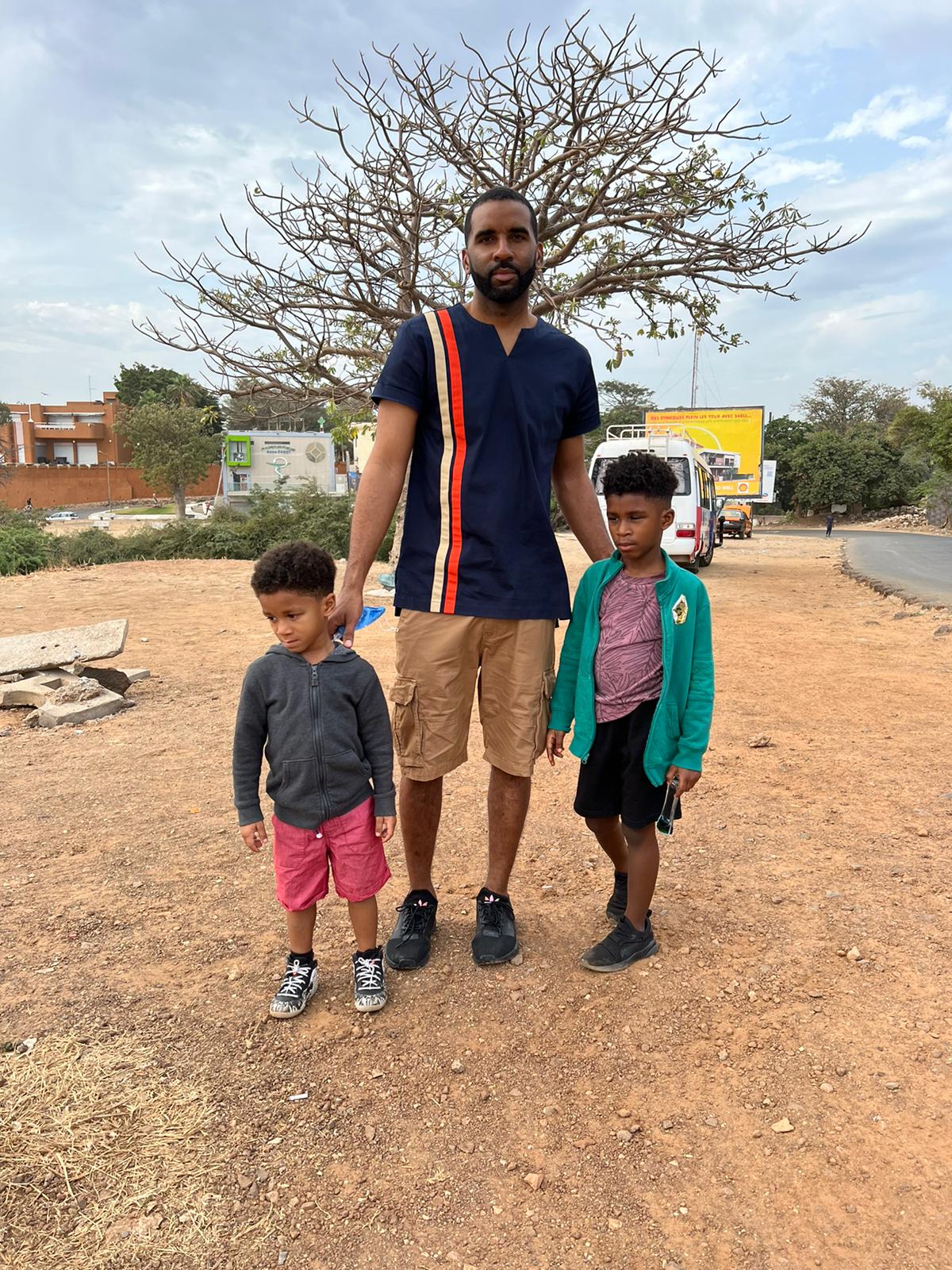
“Our eyes were opened even further when we visited the African Renaissance Monument—the tallest monument on the continent of Africa, 198 steps, 160 feet high. It has a Black family pointing to liberation, this was an unforgettable experience.”
This amazing Muslim country welcomed us with open arms. Eating was an experience all its own. We didn’t have to read labels or ask about ingredients because Senegal is a Muslim country, no pork allowed.
From Dakar, we traveled three hours to the city of Medina Baye founded by Senegalese Islamic scholar Shaykh Ibrahim Niasse (1900-1975). He is founder of the Tijaniyya, the most significant Sufi order in Africa. His work was continued by his grandson, Shaykh Hassan Cisse.
“Shaykh Hassan saved us from a form of religious slavery, where religious authority is given to Arabs. Shaykh Hassan intervened by teaching us that it is not the color of your skin that determines your knowledge. He broke the chains of religious slavery so that we could practice freely. He let us be who we were,” writes Dr. Jamillah Karim in a blog post.
In 1983, Kareemah Abdul-Kareem asked Shaykh Hassan to open the African American Islamic Institute in Medina Baye, a school for children to learn their religion and history as Muslims of African descent.
In Medina Baye, we toured the boarding school, met teachers and interacted with children. Most of the children were American ranging in ages from eight to 17. The children were learning to recite Qur’an in a traditional manner by sitting on the floor with an instructor.
The Grand Mosque of Medina Baye was the next stop in the city. It was built in 1930 by Shaykh Niasse and remodeled in 2010. The Grand Mosque serves as a spiritual headquarters to over 100 million followers around the world.
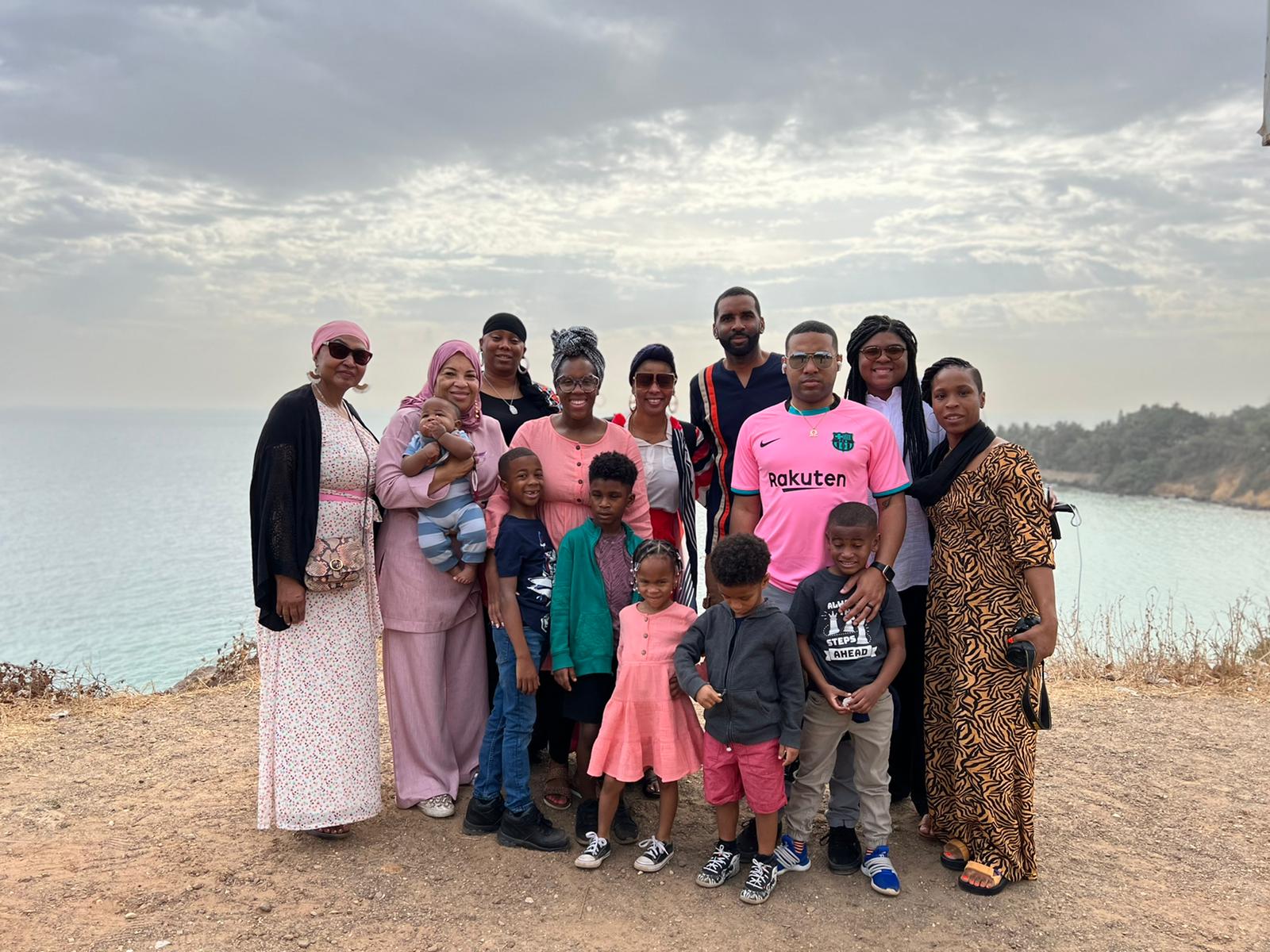
“Traveling with my family of five was a life changing experience,” said trip participant Danielle Flowers. “The excitement in my four-year-old Maxwell’s and seven-year-old Lennox’s voices every day we embarked on a new adventure warmed my heart in ways I can’t explain.
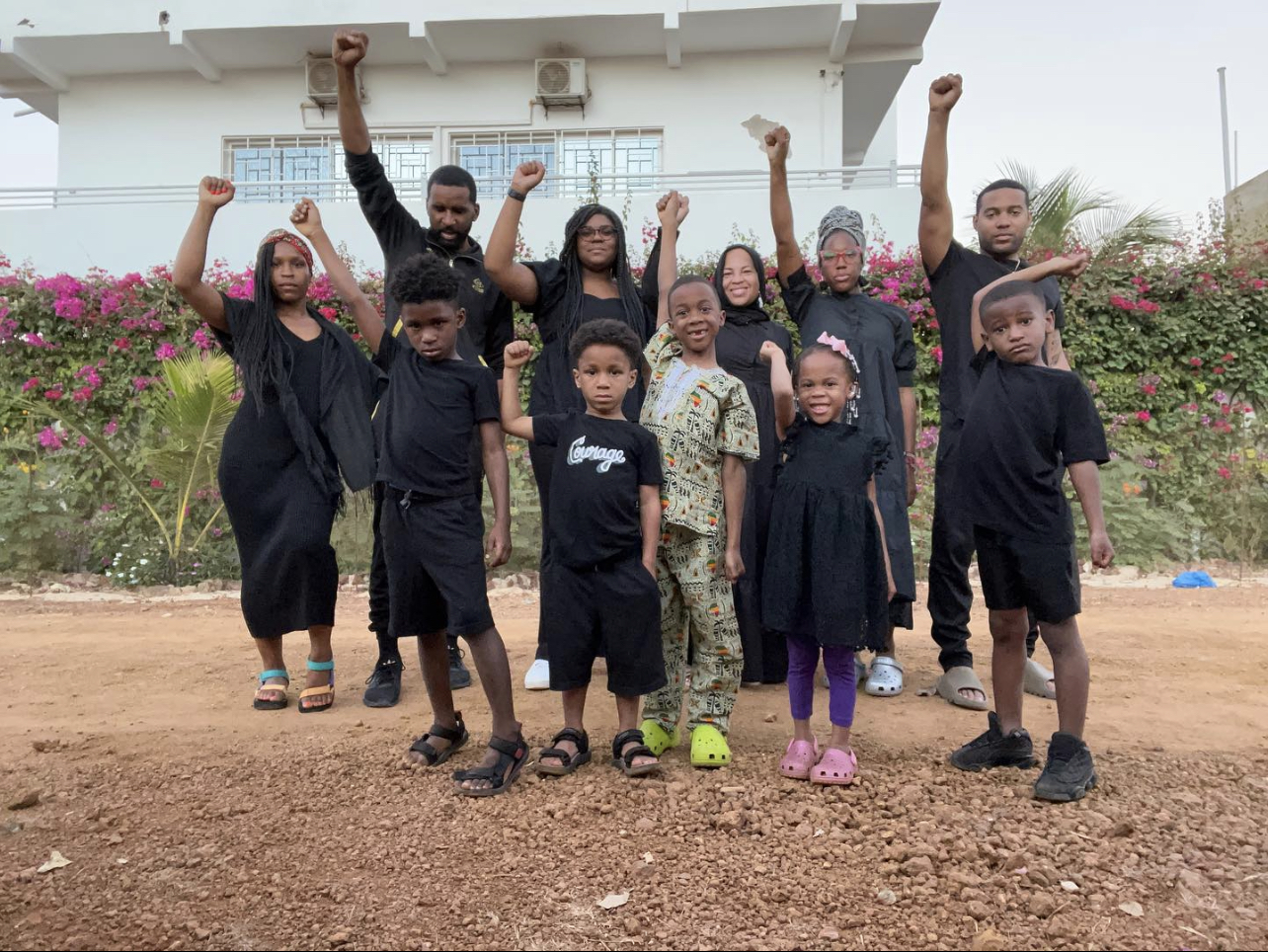
Everyday my boys woke up asking, ‘How many more days will we be here?’ Once the answer got down to two more days Lennox was nearly in tears thinking about us having to travel back home. Lennox even expressed that he wished he could live in Senegal on our final day there.”
From Medina Baye we traveled to the resort town of Saly Beach to stay in a luxurious six-bedroom Airbnb equipped with a pool and chef. The food got better immediately. Ami (our chef) took daily orders for all our favorites. There is no such thing as a meal ready in under an hour in Senegal. Cooking was an event that took hours and when we finally ate, it was well worth the wait.
Our final days were spent shopping at the local craft market, lounging at the pool, collecting shells at the beach, having a cooking demonstration, and attending Jumuah prayer service at the local mosque.
“This trip exceeded our expectations by far. Traveling to Africa for the first time was an eye-opening experience and has sparked deep conversations amongst my family. My seventeen-year-old daughter enjoyed witnessing the different customs and the Senegalese way of life,” said Mrs. Flowers.
“My biggest takeaway was, ‘I already have enough.’ I want to be less of a consumer of things and enjoy more experiences going forward. This trip has motivated me to truly reevaluate my daily life. My husband and I can’t wait for our next adventure in the Motherland,” she added.
Her husband added, “We made a deposit in our family with this trip.”












